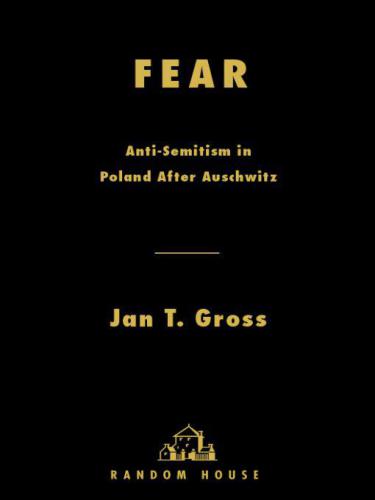
Fear
Anti-Semitism in Poland After Auschwitz
کتاب های مرتبط
- اطلاعات
- نقد و بررسی
- دیدگاه کاربران
نقد و بررسی

Starred review from May 29, 2006
Reviewed by Deborah E. Lipstadt
Rarely does a small book force a country to confront some of the more sordid aspects of its history. Jan T. Gross's Neighbors
did precisely that. Gross exposed how in 1941 half the Polish inhabitants of the town of Jedwabne brutally clubbed, burned and dismembered the town's 1,600 Jews, killing all but seven.
The book was greeted with a terrible outcry in Poland. A government commission determined that not only did Gross get the story right but that many other cities had done precisely the same thing.
Now Gross has written Fear
, an even more substantial study of postwar Polish anti-Semitism. This book tells a wartime horror story that should force Poles to confront an untold—and profoundly terrifying—aspect of their history.
Fear
relates, in compelling detail, how Poles from virtually all segments of society persecuted the poor, emaciated and traumatized Holocaust survivors. Those who did not actually participate in the persecution, e.g., Church leaders and Communist officials, refused to use their influence to stop the pogroms, massacres and plundering of the Jews. The Communists used the anti-Semitism to consolidate their rule. Church leaders justified the blood libel charges. Even Polish historians have either ignored or tried to justify this anti-Semitism.
Gross builds a meticulous case. He argues that this postwar persecution is "a smoking gun," which proves that during the war Poles not only acquiesced but, in many cases, actively assisted the Nazis in their persecution of the Jews. Had they been appalled by Germany's policies toward the Jews or tried to help the victims, Poles could never have engaged in such virulent anti-Semitism in the postwar period. Gross notes that when the Germans were trying to put down the Warsaw ghetto uprising, Poles—including children—not only cheered as Jewish snipers were spotted and killed but gleefully showed the Germans where Jews were hiding. Those Poles who helped Jews were often persecuted or even killed by their neighbors.
I am troubled by references to "Polish death camps." They were not Polish death camps but camps the Germans placed in Poland. I have taken even stronger issue with the opinion voiced by many Jews that the "Poles were as bad as—and maybe worse than—the Germans." I argue that while there was a strong tradition of anti-Semitism in Poland, Poles never tried to murder Jews in a systematic fashion. After reading Fear
, the next time I hear someone say the Poles were as bad as the Germans, I will probably still challenge that charge —after all the damage wrought by the Germans cannot be compared to what the Poles did—but my challenge will be far less forceful. I may even keep silent. 8 pages of photos. (July 4)
Lipstadt is director of the Rabbi Donald Tam Institute for Jewish Studies at Emory University and the author of
History on Trial: My Day in Court with David Irving.

June 1, 2006
Professor Gross' widely acclaimed " Neighbors: The Destruction of the Jewish Community in Jedwabne, Poland" (2001) described the slaughter of Polish Jews by their fellow Poles as the Nazis watched approvingly. Now Gross illustrates with eloquence and shocking detail that the bloodletting did not cease when the war ended. Contrary to most expectations, many Polish Jews who survived the Holocuast wished to remain in Poland. After all, Jewish and Gentile Poles had generally coexisted peacefully, if not harmoniously, before the war, and many Polish Jews viewed themselves as staunch patriots. But when Jews attempted to return to their hometowns and to reclaim their property, tensions reached the boiling point; the explosion came in the town of Kielce, when the disappearance of an eight-year-old boy sparked the old blood libel of ritual murder. As the slaughter of Jews began, police and military officials either joined in the outrages or refused to intervene. In succeeding years, with the complicity of Communist authorities, the position of the remaining Polish Jews continued to deteriorate. By 1949, the goal of the Nazis had been achieved: Poland was essentially free of Jews. This is a masterful work that sheds necessary light on a tragic and often-ignored aspect of postwar history. (Reprinted with permission of Booklist, copyright 2006, American Library Association.)

























دیدگاه کاربران